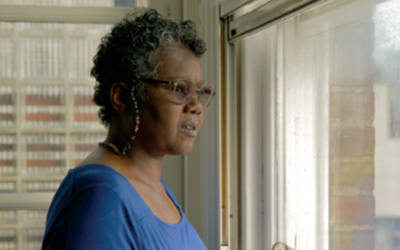Context
Over 55 million people globally live with dementia with numbers increasing as the population ages. In 2015, UK dementia was estimated to cost £25 billion, mostly in family care and care home costs. Sleep disturbance in dementia is common, affecting 39% of people with Alzheimer’s disease and makes functioning and quality of life worse. Family members provide most of the care for the two-thirds of people with dementia living at home. People with dementia may wake - during the night, disoriented or distressed. Family carers often cannot manage persistently disturbed sleep without night carers, who can be unaffordable. Unsurprisingly, sleep disturbances in dementia predict family carer depressive symptoms and earlier care home admission. Tackling sleep is in line with UK policy priority to help people live well at home if possible.
To date there is a lack of evidence that any therapy to treat sleep disorders in dementia is effective. There is no clear evidence that drugs for sleep for people with dementia are effective and they cause side-effects such as sleepiness during the day and falls. NICE’s guidelines recommend against using medication. Patients and doctors also prefer non-drug approaches for sleep problems in people living with dementia.
As sleep disturbances in people with dementia have mixed causes (pain, environmental, anxiety, inactivity, dementia), promising interventions have several elements which can be tailored for individuals.
The DREAMS studies
Two pilot studies in community-dwelling people with dementia, and our DREAMS START (Dementia RElAted Manual for Sleep; STrAtegies for RelaTives) feasibility RCT, found potential benefits of combining light with sleep education and hygiene, exercise, activities, and cognitive behavioural therapy. However, the other studies had higher drop-out rates (40-50%) than our feasibility RCT (8%). We have therefore the first feasible non-pharmacological intervention for sleep in dementia.
Building on our feasibility study, DREAMS START HTA-funded effectiveness study is the first full non-pharmacological randomised controlled trial for people with dementia and sleep problems. It aims to find out whether it is effective and affordable at 8-months. Supervised, trained NHS assistant psychologists deliver DREAMS START to carers. It is personalised and tailored and leaves the family carer with a co-designed future action plan, so both carer and person with dementia’s sleep continue to be better. We are near the end of recruitment, finishing in March 2023.
This NIHR ARC funded study called DREAM Longer will follow up people 2 years after they began the study, providing previously unavailable long-term effectiveness evidence. We are also adding evidence from the main trial to identify what factors will impact on future implementation to inform future roll out in the NHS, if effective.


 Websites
Websites
 Publications
Publications


